
British A Level versus IB “Sensationalist Claptrap.” The Big Guns in UAE British Schools Fight Back. A Levels are the proven gold standard global qualification for universities and employers. No Ifs, no Buts.
Schools and parents are hotly divided on the merits of the International Baccalaureate system, with its promise of a broad-based curriculum, internationalist pretensions and more opportunities to find a student’s forte, versus the more focused A Level system, steeped in decades of history and used as a model for learning around the world.
It seems too that not a week goes by when we, at SchoolsCompared.com, are not sent press releases by the IB with claims about the relative value of their qualifications over the alternatives, including A Levels.
Little wonder then today that the International Baccalaureate PR machine’s choice to take on A’ Levels quite so aggressively is being replicated by IB schools.
This article is itself a rebuttal of last week’s comments by leading IB schools that A’ Levels have had their day (“A Levels are Dead. The IB is the new Gold Standard …) here.
These proponents of the more modern IB curriculum, say that, to all intents and purposes, the A Level system is defunct and devalued to the point of irrelevance.
In a defence of the British curriculum, Schools Compared spoke to leading British schools in the UAE to give them a right of reply. We asked them whether these criticisms of A Levels and British curriculum schools hold water and why they think that the IB is becoming ever more outspoken in attacking its competition.
Dubai College.
For many parents, Dubai College represents the stand-out British curriculum school in the UAE – and it is unarguable that the school competes with the very best A Level founded schools on a global stage.
Michael Lambert, Headmaster of Dubai College is convinced that the A Level system remains a superior model of qualification over its newer upstart rival:
“This latest defence of the IB is the sort of sensationalist claptrap which once again fetishes qualifications and equates them with an education.”
“It smacks of the desperation of school leaders scrabbling to populate their school rolls – and is certainly not the balanced discussion of the nuances of education which parents and children [actually] need.”
Mr Lambert argues that we should let the evidence speak for itself, evidence that Mr Lambert believes demonstrates that the IB is no more than a fringe qualification and one, relatively, only barely on the radar of top universities.
Mr Lambert clarifies that, beyond the dissembling mire of poppycock and IB school marketing fluff to parents, that:
“[t]here is only one true data source parents should review to understand what trends are really unfolding in terms of qualifications: the UCAS End of Cycle Report.
This provides the national overview of demand for, and acceptances to, undergraduate UK higher education.
Over the past 11 years, students with IB qualifications continue to account for less than 1% of acceptances into UK universities – certainly a far cry from the global takeover suggested by IB advocates.”
Mr Lambert argues that, in fact, the qualification that has really eaten into the dominant market share of A Levels is the more vocationally focused BTEC, this often taken in conjunction with, and not instead of, A Levels.
For Mr Lambert, it is on this less emotional, high integrity and scientific basis, that
“…in short, the IB remains a fringe qualification at the periphery of the educational debate.”
Brighton College
Another of our Tier 1 British curriculum schools is equally vociferous in their defence of A’ Levels.
Simon Corns, Head Master at Brighton College Abu Dhabi, told us that the evidence for the strength of the GCSE and A Level system is clear and unarguable. He cites:
“… outstanding results and huge success at university entrance all over the world, including the top universities in the USA.”
More than this, for Mr Corns, A Levels simply academically and holistically develop children better:
“Within the British system, students are encouraged to develop through inquiry, independent thinking and creative discovery.”
And, for Mr Corns, it is “not all about raw results”:
“Value added data, when we last had formal examinations, showed pupils adding on average 1.4 of a grade at GCSE and at A level, 0.6, so [outstanding British curriculum schools] empower pupils to exceed targets by a very significant margin. This year, the value added figures were, at A level, 1.07; and, at GCSE. 1.86.”
Advice for parents
Instead of focusing on qualifications, Mr Lambert suggests that parents should look at the onward destination of students from a particular school:
“If your child’s dream (or indeed your dream for your child) is to pursue higher education in the US or UK, then you would be wise to select a school with a proven track record of supporting students successfully into their universities of choice.
For example, if a student wishes to take an Art Foundation degree, or go to stage school, the smart move would be to select a school with the necessary expertise to facilitate that journey.“
For Mr Lambert, this should be the real test of a school rather than its curriculum per se:
“A GCSE, A Level, BTEC, Scottish Higher or an IB Higher are simply interchangeable certificates which enable young adults to advance to the next stage of their life in the highly ‘credentialised’ world in which we live.”
Depth over breadth
One criticism aimed at A Levels by its critics is that the three (and rarely four subjects) chosen at A Level by students studying in Sixth Form is far too limited. The IB, it is argued, offers breadth (with six subjects), this encouraging students to explore more topic areas before committing to a university degree, and career.
Mr Lambert will have none of this:
“A debate over depth (A Level) versus breath (IB) is something of a moot point – especially when students have the option to pursue more than 3 A Levels if coupled with an Extended Project Qualification, the International Award and, in the case of some schools, a Mini-MBA programme to study further.”
Mr Lambert continues:
“Teaching pupils to focus on the likes of long form essay writing focused on a particular subject, also prepares them for the demands of university life.
Additional opportunities are also provided within the A Level system, including the research-based Extended Project Qualification.
This complements A levels and ensures that pupils can develop their research and creative skills in an area that interests them, even if it is not directly related to the A Levels being studied.”
The Royal Grammar School Guildford in Dubai
Dr. Jon Cox, Headmaster of the Royal Grammar School Guildford, believes passionately that A Levels retain their international gold standard because of:
“the confidence they retain amongst universities and employers.”
To Dr. Cox, specialisation is, in fact, an aspect supporting students keen to focus on skills they enjoy and excel within:
“Many do not enjoy the full range of academic subjects at GCSE and are keen to move away from those less favoured.
To have to study a broader range of subjects in the Sixth Form can be very demotivating for students.”
Dr. Cox continues:
Specialising in fact aids the transition to university.
The Royal Grammar School Guildford in Dubai will open in September 2021. More on the opening of this famous, tier 1, British curriculum school’s opening can be found here.
Standing the test of time
For proponents, British curriculum schools offer a decades-old, proven (and admired) system of education that has stood the test of time.
Mr Corns candidly acknowledges that British education “did go through a slightly less glorious patch when the modular approach promoted a culture of ‘learning-for-the-test.'” But Mr Corns is adamant that:
“…reforms since, addressed the blip and restored the curriculum’s rigour.”
Mr Corns continues:
“In the educational world, the qualification is rightly known as, and remains, the world’s ‘gold standard’ qualification.
This is why no serious education minister has ever considered jettisoning it – and why universities throughout the world respect and rely on it.”
Mr Corns accepts that their are other qualifications, including the IB:
“It would be arrogant to claim that the British system is the only good one – but British education is a system that has a very long tradition behind it, leading to qualifications that have, by and large, resisted the vagaries of educational experiment and ideological zealotry.”
Implicit in much critique of the IB is that it is a qualification that lacks this history, proven value and substance of the A’ level.
“I could get together with some colleagues in the back of my shed and make up a qualification – but that does not mean that it would be any good, whatever nonsense I spouted about it to get parents on board,” one Principal told us.
Kent College Dubai
Anthony Cashin, Principal of Kent College Dubai acknowledges that context is key, each child needing to find the way of studying which best suits their character. This has never been more true today in the context of the Covid 19 pandemic.
Kent College offers both curricula and feels learning should be made more individualised to bring out the best in each child:
“If the recent COVID-19 crisis has taught us anything, it is that our children and future generations need to be prepared for volatility, uncertainty, complexity and ambiguity. The challenges of these times have allowed us to reconsider and begin to transform the why, what and how we educate our youth.”
Mr Cashin told Schools Compared that, while curriculum is an important factor to consider, understanding what is better for one’s child, is more critical:
“The question to ask oneself is not so much “[w]hich is the best curriculum for my child?” but, rather, “[w]hich educational context is most likely to empower my child to flourish now – and succeed later in a rapidly changing world?”
GCSE
Dr Cox insists that GCSEs, the transition qualifications to A Levels, remain a vital element in the British system, as well as in many IB schools. In both systems it is integral to the overall educational outcomes of students:
“When we are looking at British curriculum qualifications, we cannot look just at A levels.
The GCSE programme is an academically rich and broad curriculum and continues to be a valued tool to prepare children for their final two years of schooling, whatever the curriculum they choose.
The GCSE provides the breadth and depth of understanding needed for pupils to successfully transition to either the A levels or IB.”
This is a point echoed by many British Principals who pointed out to us that in most of the top IB schools it is GCSEs that are chosen to prepare students for later IB qualifications rather than their in-house MYP. They also point out that the IB Career-related Programme is founded in almost every school offering it anywhere in the world on the British BTEC.
Progressive education
We have no truly progressive schools in the UAE. More on the world’s most famous example of a progressive school can be found here in our review of the UK’s Summerhill, here.
Progressive schools argue that the traditional and formal education offered by British curriculum and IB schools both fail children. Progressive schools argue that traditional schools simply push children through a spaghetti factory awarding qualifications to meet the needs of anything and anyone except children themselves. Children, it is argued, are taught no more than to become “an actor in someone else’s script” and that regimentation kills freedom, innovation and “real learning”:
“Schools are intended to produce, through the application of formulas, formulaic human beings whose behaviour can be predicted and controlled.”
Dumbing us Down. The Hidden Curriculum of Compulsory Schooling. John Taylor Gatto.
The point being made here reflects Mr Lambert’s argument that we should recognise all qualifications for what they are – simply certificates to buy children into the next part of their journey. For us, the real issue is what the best schools enable children to actually learn within those parameters.
Ask a progressive, however, which of the two system they would choose, at a push, and it is A Levels which would triumph. Why? Because A Levels empower students to choose to learn only those subjects that fascinate and inspire them. In the best schools, the choice of subjects is so extensive as to never leave any child’s passions without a match. The critique of the IB system, for progressives, is that it does not empower students, who are, after all, old enough to fight for their countries in wars, the freedom to study what they want to. Instead the IB forces students to study what too often they do not want to on the basis of someone else’s determination of what is important. The IB, for progressives, is the perfect dystopian nightmare of a command and control mechanism to control student’s learning.
In many progressive schools you will find children studying for A’ Levels. They do this because they have chosen to. We know of no example of a student at a progressive school studying for the IB.
The inherent unfairness and Bias of the IB
Worth noting too that the International Baccalaureate Diploma quite brutally disadvantages students that are not natural linguists on the basis that, to be a valued member of society (according to the IB) you must be able to speak more than one language fluently. Students who struggle with languages, however high achieving they are in other subjects, get downgraded against their peers. The IB forces these children to fail before they have even started studying.
The British system does not force any child to study for an A Level in languages (or indeed in any other subject).
Equally, the IB requires students to study the Sciences, mathematics and Arts. If a student struggles in any one area they will, again, be quite brutally downgraded in scoring next to their peers, this regardless of how talented they may be in any one or more of these areas of study.
Bottom Line? The SchoolsCompared.com Verdict on IB Versus A Level, British versus IB Schools
The pressure is, of course, from schools, for us to sit on the fence and not upset any part of our school community.
But sitting on fences does not move the world on one iota. It is invariably a cop out. Our views on what we think should be the bigger picture question, the limited value of examinations themselves and the damage caused by the “highly credentialised” world we are subjecting our children to regardless of curriculum (“Letter from the Editor. GCSEs should have no place in British Education”), can be found here.
Until we reach a day in which examinations are not the centre of the universe for our children, we think, however, that the the real answer to the question of what constitutes the best schooling for our children simply cannot be found in old chestnut discussions of the merits of the IB over A level, or vice versa.
Instead, we think parents will learn more by exploring how much the best schools set students (our children) free to explore their learning passions within the constraints of each system.
Bad schools do not want to discuss this.
They would much rather divert parent’s attention to debating the merits of the IB or A Level rather than the breadth of subject choice they offer students or the calibre of their teaching faculty.
We say that whether a school offers the IB or A Level tells you absolutely nothing about how good a school actually is.
So, what as parents should we be asking?
How about starting with how many subjects a school, regardless of its curriculum, provides for students to choose from?
How about asking how good their teachers really are – and how much their teachers measure their success on the child at the bottom of the class as at the top or middle?
Let no child be left behind. But also let no child be pulled behind.
A school may offer its children a choice of only three A Level subjects. It may force all children to study those three subjects. It may even get good results in those three subjects. But is that a good school? Is that a good education?
A school may have teachers that “teach” children by rote to learn exactly what is required to pass exams. But is that a good school? Is that a good education?
Some IB schools are populated by extraordinary teachers that deliver for children and offer an equally extraordinary breadth of subject choices from which children can choose to follow their passions. The same holds identically true for British curriculum schools offering A’ Levels.
These will always be the better schools for the vast majority of our children – and in these cases their worth has absolutely nothing to do with the curriculum they offer.
However, we promised not to sit on the fence.
In our view, with few exceptions, the IB does not allow children to choose the subjects to study that they are passionate about, are good at and enjoy in the depth which A Level does. More importantly, it requires students to study subjects that they may well not enjoy, not be good at and have no interest in because of its underlying ideological bias.
The IB Diploma is, in many ways, a higher form of GCSEs in British education – the IB model believes that children should continue at 16 to study subjects drawn from the Arts, Sciences, Languages and Mathematics and not be able to focus.
The end result is that students who are outstanding in every area academically will be the ones who excel in the IB. In the real world, however, the vast majority of students are simply not good in every subject, and will accordingly suffer. The polymath will thrive in the IB, the specialist or average child cannot.
British A’ Level schools believe that at 16 students should have the freedom to follow their passions and not be dictated to. They believe that at 16 students should have the right to decide to invest two years of their lives in subjects that fascinate them. British education believes that the prize of an education is as much about inspiring love of learning than it is about examinations.
British A’ Level (and BTEC) founded schools believe that Sixth Form should be about growing up, being empowered to make choices, being given responsibility, celebrating difference and freedom. The underlying ethic is not, at 16, to simply provide a continuation of a project to mould international citizens.
If children can fight for their country at 16, should they not be given the choice to study what inspires them?
British A Level study too, is much nearer to the experience that students will have at university than the IB.
Finally, because students have the time to study subjects in much greater breadth, A Levels can ensure that both polymaths and specialists can thrive and draw from other knowledge in whatever subjects they choose to bring the study of their core subjects to life.
Given the choice between two outstanding schools, one IB and One British A Level, we would, then… recommend the British A’ Level school.
Life, however, is never as simple as this: There are many British schools which market themselves on the basis of their Sixth Form A Level curriculum, but which offer students very restrictive choices of A Levels from which to choose their options for study.
Many poor British schools too, have fewer teachers so that the timetable determines which subjects a student can study rather than the student.
In both cases, these schools will be worse for children because they will be forced to study subjects that they have no interest. These schools will be worse than even the very worst IB school which at least guarantees students will have access to areas of study in which they will thrive and be passionate.
The lesson? As parents we should beware of schools hiding behind their curriculum.
Ultimately, what this shows is that starting with the curriculum of a school as a way of deciding whether it will be the right school for a child will not be fruitful if you do not have a choice between outstanding British and IB schools.
If you are, however, lucky enough to have this choice, we think a British A’ Level education will, in almost every conceivable case, be the better choice for students.
And so, just as perhaps always when it counts, the British bulldog comes out of the shadows when it matters most – and … with absolutely no need of press releases.
© SchoolsCompared.com 2020. All rights reserved.
Notes for parents
(1) Interesting further reading on the foundations of progressive education can be found in John Holt’s study of “How Children Fail”, Amazon link here, and John Taylor Gatto’s “Dumbing us Down. The Hidden Curriculum of Compulsory Schooling”, Amazon link here.
(2) Although we have come out in favour of British A Level schools, we hold a less clear cut position on the IB Diploma versus BTEC. We view the IB Career related programme as the jewel in the crown of IB education. Our Guide to the Career-related Programme can be found here.
(3) For parents looking at American schools who may see this debate as interesting but largely irrelevant, we would always recommend seeking American schools that offer Advanced Placement. More on why here. American school choices are no less complex.
(4) Finally, for parents who are looking at Indian curriculum schools, we would, again, urge parents to focus on the breadth of subject choice offered by a school, notwithstanding cultural pressures to see restrictive subject choices within Business and Science streams as a strength not a weakness.
(5) Finally, whilst we have sided with one curriculum here, the ultimate decision of the best school for any child will always depend on visiting a school. Every school in the UAE will be the best choice for one or more children, this for a plethora of reasons ranging from whether their siblings are at the school, price and location to a particularly outstanding individual department or specialism in a school such as the Performing Arts. Nothing can explain or justify the gut feeling that comes from visiting a school, regardless of its curriculum or rating, that simply says it is perfect. It is the one. Parents know their children best – and in the choice of school, there is no more powerful a recommendation for a school than when parents and students, when visiting a school, feel that it is the right choice for them.













































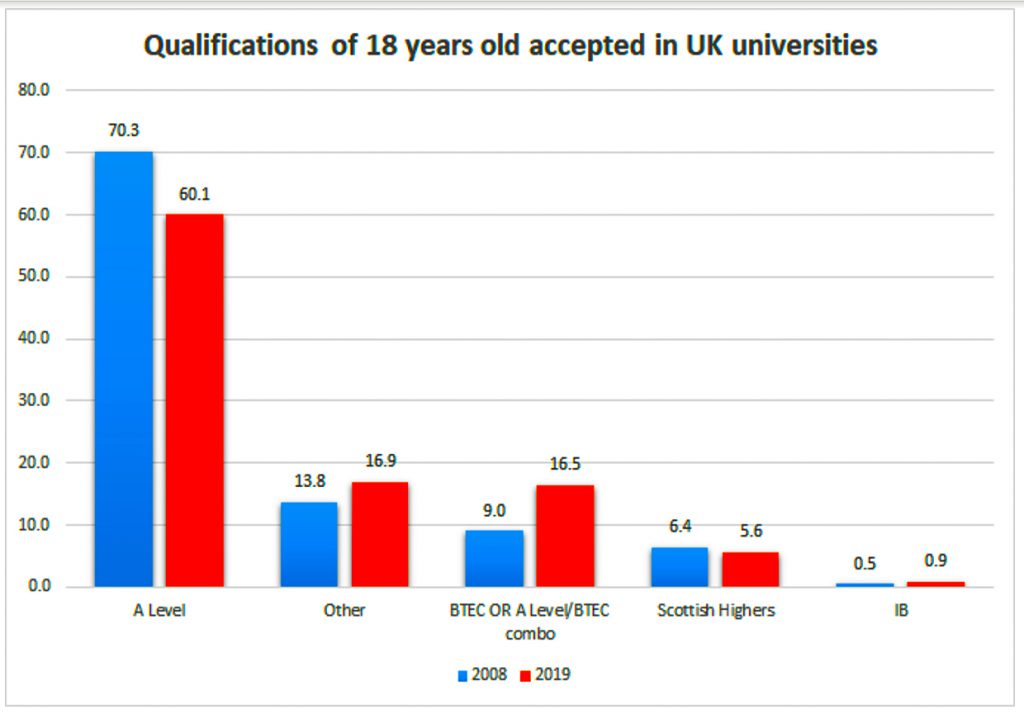
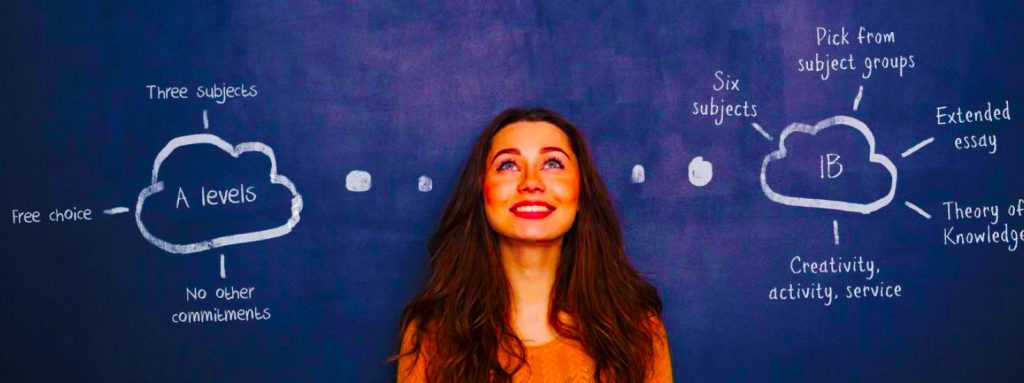
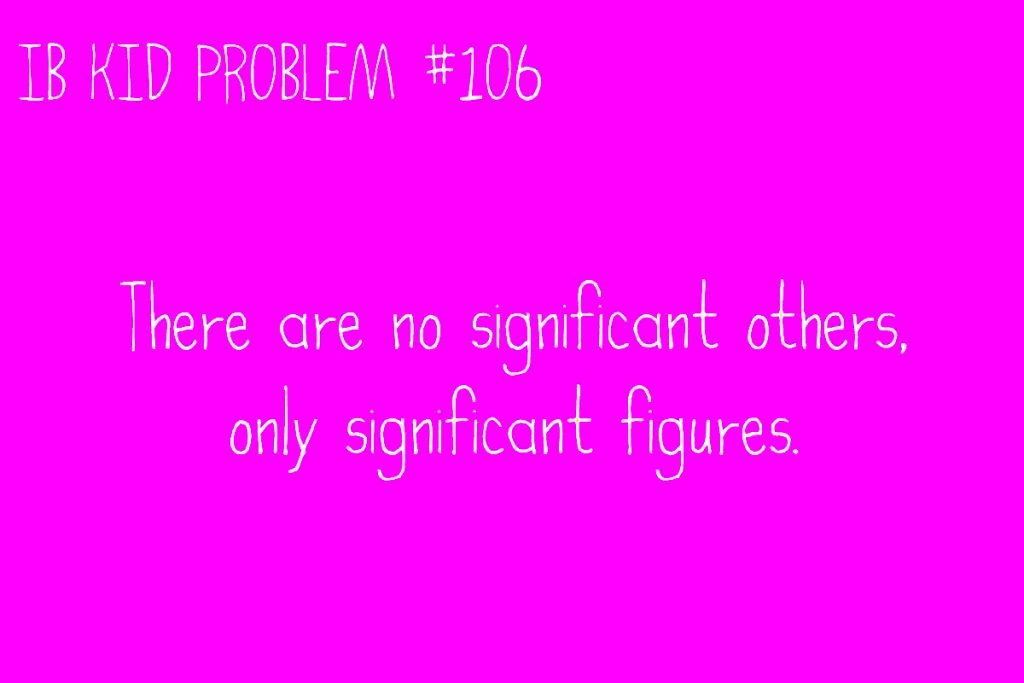
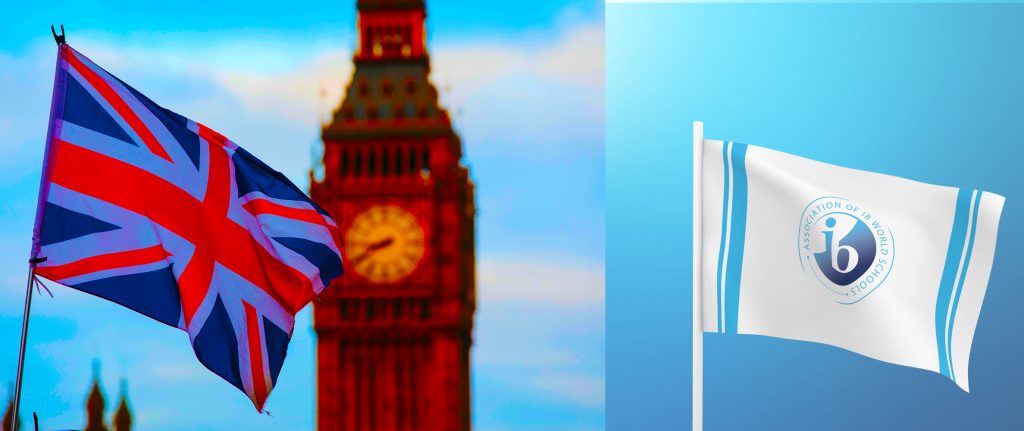
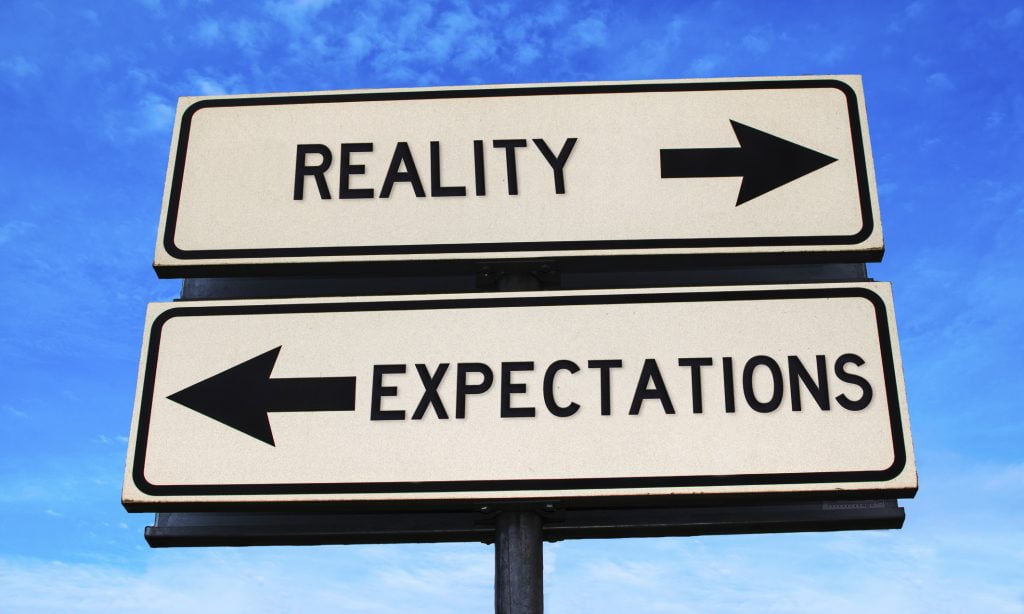
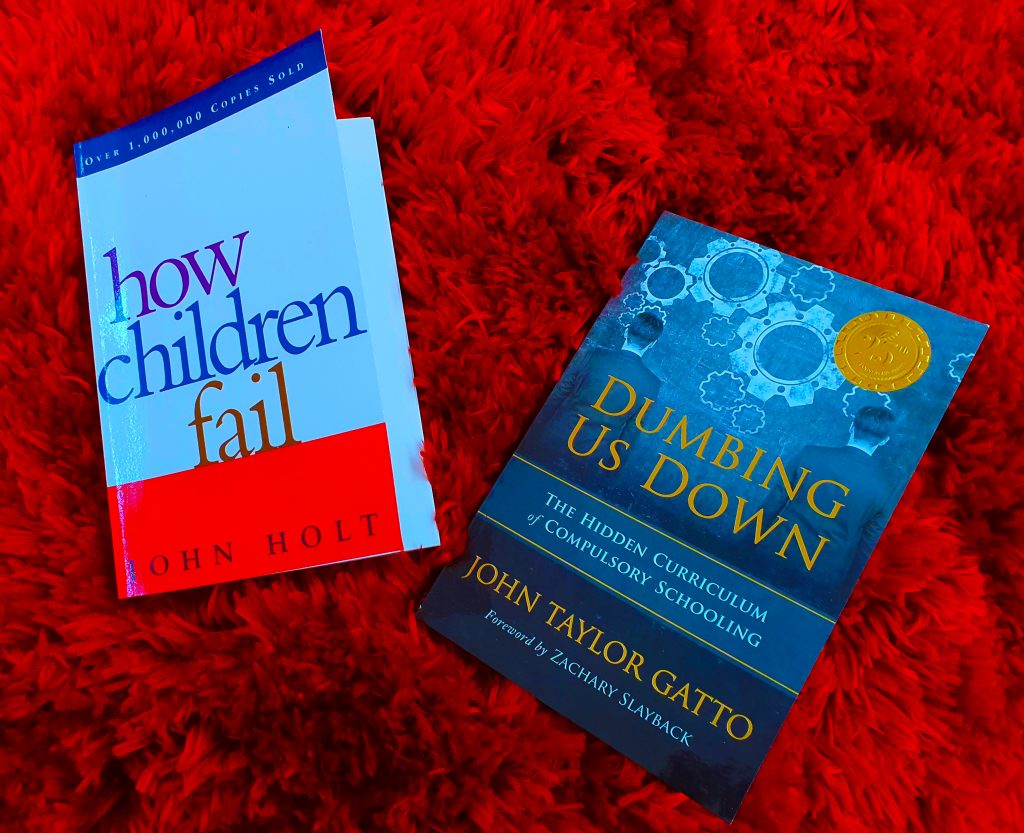







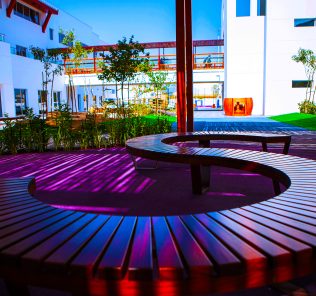
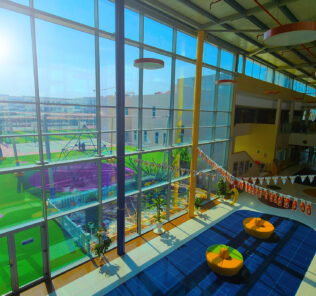

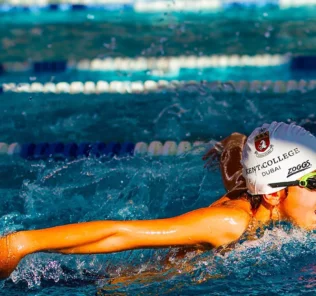












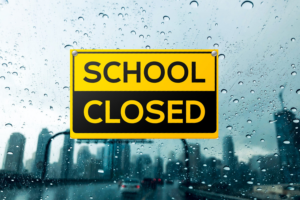
Leave a Response